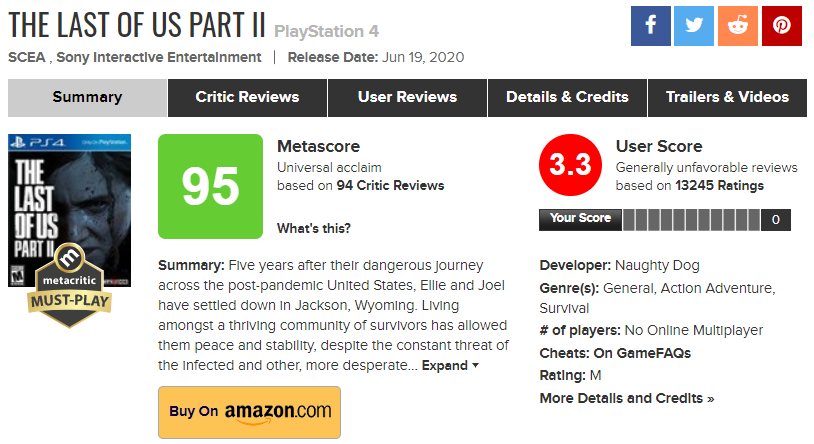A GME autist explicates his suspicions of the sudden rise of an alternative stonks forum:
We know the GME saga is bigger than a subreddit drama surrounding an epic stock play. This situation only came about through decades of financial fraud: short interest more than 100{3549d4179a0cbfd35266a886b325f66920645bb4445f165578a9e086cbc22d08} and retail owning more than the whole float are supposed to be impossible. The resulting recursive loop glitch in the market technically has the potential to send the price to any number. We know this can go high enough that it obliterates the financial establishment, and I think higher powers (whether they be financial institutions, regulatory bodies, or governments themselves) have known this as well since at least January. They are self-serving, pro-active, intelligence-gathering organisations. These institutions are beholden to people with a lot of power and influence, and they really want to keep it, so they won’t have been sitting around on their hands waiting to lose it all. They can, and will, have amassed teams of analysts and experts to work around the clock developing and carrying out plans to prevent or limit the squeeze – to make people sell, or at the very least, sell early.
Don’t you think it’s weird how it seems the best they could manage is price drops, straight-forward FUD spam, and a few fake news articles? Weren’t we expecting some greater scheme to be executed, that they’ve been planning something bigger all along? Didn’t the structure of events over the last few days seem incredibly coordinated to you?
Think about it
We’re in the run up to the share recall deadline, everything is panning out as expected. It’s Sunday night, April 4th, on [r/]GME. It’s been a fairly quiet few days except: a couple new mods are announced, alongside some chatter saying they’re sus; rensole (supposedly accidentally) sends a server-wide discord message eluding to the sub being compromised; wardenelite gets banned for having self-promotion in his post (again). Then, suddenly all this information about fairly mild moderator drama is revealed. Rensole and redchessqueen99, the ‘celebrity mods’, claim they have been pushed out, and although other mods are insisting they weren’t, a bunch of accounts start hyping up that ‘[r/]GME has fallen’. The story gets muddied, and now people are panicking. Rensole posts a vague summary of events full of what look like subtle exaggerations and half-truths, portraying him and red as benevolent, moderate, and humble, says nothing to calm the fears the sub is compromised, then finishes by saying they’re both moving to [r/]superstonk – a subreddit that has existed for less than two weeks and isn’t even GME focused (allows discussion of distraction stocks like AMC).
In times of crisis people tend to cling onto what they feel is most familiar to them, and I think this was exploited here.
So next the spamming begins. I’d never seen this community act with such frantic haste, and I find it very hard to believe that every account endlessly pushing [r/]superstonk and bashing the mods was genuine – I looked at a lot of them, and although some looked real, many were only a few weeks old, or had long breaks before recently starting to post generic GME related content. During one of the quietest periods of the week, everything is kicking off, people are confused, and information is conflicting. The subreddit is bombarded with a broad message of ‘you should be fearful, uncertain, doubtful of this sub; act quickly, you don’t need to think about it, just trust in the celebrities; flee, come to [r/]superstonk, the safe utopia where you can finally let your guard down!’ So of course, everyone does.
And now, when people arrive on Monday morning, one of the busiest periods, it appears ‘the great migration’ has already taken place – you’re just late to the party. [r/]GME is a bomb site, full of spam and shitposts throwing out the wildest claims to make it look terrible, and urging people to move to [r/]superstonk. When people do, they find a heaven with friendly apes, excellent memes, and all the well-known users (because they are human and followed along like everyone else). It presents as what [r/]GME felt like weeks ago before the endless FUD, bots and shills started piling in and confusing everything.
Nobody questions why there are no FUD bots there – it’s sweet release in knowing the community is finally safe under the new benevolent order. Nobody questions why Thornton McEnery, a Marketwatch journalist with (in my opinion) a consistent track record of releasing carefully crafted FUD articles, references [r/]superstonk on the first day of its relevance, while [r/]GME never got a single mention in the media ever. If [r/]superstonk was legit, why wouldn’t the higher powers be doing everything they can to destroy it just as they did for [r/]GME?
We know from mod testaments released shortly after these events that rensole had been dominating leadership (thr0wthis4ccount4way’s post has now been removed, but it was literally the first line), and that recent attitudes in the mod team had become much more ban-happy, which rensole denounced during the heat of the drama. Since he had a role of leadership in the mod team, if rensole really thought FUD was as simplistic and manageable as he makes it out to be publicly, how did the moderation team develop a culture of excessive paranoia and over-banning? He gave a strong impression that unification was important, and that he was self-aware of his leadership role, so why did he decide to change subs so unexpectedly during a period of drama and misinformation? You’d think he would’ve known a large portion of the community would follow, and a division was highly likely? Something doesn’t add up here.
Undercover operations are standard practice in law enforcement in most countries in the West, including the United States. With how big GME has gotten, I think it would be foolish to seriously believe there isn’t the possibility of this being an operation; it has every hallmark of a honeypot trap. Since everyone is effectively unknown on Reddit, everyone is on the ‘sus list’ by default. Before the January gamma squeeze, neither rensole nor redchessqueen99 existed in the GME community at all, yet now they are basically running things. I think that warrants an investigation at the very least.
There are various forms of undercover ops directed at every online community, no matter how innocuous they are. These can range from amateur infiltrations, such as the Big Bear haters who subscribe to SocialGalactic in order to see what’s going on there, to the national intelligence agencies that patrol every comment system on the Internet and attempt to steer the trends on the major social media sites.
This autist’s analysis is worth reading because he describes a number of tells that even the most professional operators can’t help but betray. What I find interesting is how much overlap there is between natural gamma behavior and professional shill behavior. In either case, it provides more than sufficient justification for the zero tolerance policy here.
Anyhow, it’s always wise to be suspicious of newcomers who become self-appointed leaders. In both the cases of the Tea Party and Comicsgate, for example, individuals who had nothing to do with the original organic movement leaped to the front of the parade and managed to successsfully redirect it. And before anyone tries to make this about me somehow, I will remind everyone that I was not a part of either the Tea Party or Comicsgate.
For me, the second-biggest indicator of an unreliable figure is their tendency to dissemble and avoid answering direct questions. The biggest indicator, of course, is favorable media coverage.

